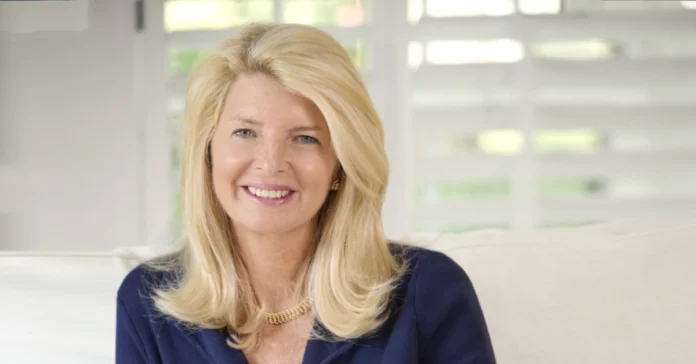Ever wondered why some kids seem to run their households while parents struggle to regain control? Beth Grosshans, a clinical child psychologist with over two decades of experience, has been asking that same question—and more importantly, she’s found the answers.
Who Is Beth Grosshans?
Beth Grosshans isn’t your typical psychology professional. She’s the kind of expert who notices patterns others miss and isn’t afraid to challenge conventional wisdom. After launching her private practice in 1994 in Flemington, New Jersey, she worked with children, adolescents, adults, couples, and families until retiring from clinical practice around 2011.
What sets Beth apart? She identified something revolutionary that was hiding in plain sight within struggling families across America.
Academic Foundation Behind the Expert
Beth’s credentials read like a psychology enthusiast’s dream resume. She earned her Bachelor’s degree in Psychology from The University of Cincinnati, then went on to complete both her Master’s and Ph.D. in Clinical Child Psychology from Ohio State University.
But here’s where it gets interesting—her training didn’t stop there. She completed internships at Boston Children’s Hospital and Judge Baker Children’s Center, both affiliated with Harvard Medical School. This experience gave her front-row access to some of the most challenging cases in child psychology.
She also received additional training in Intensive Short-Term Dynamic Therapy under Dr. Habib Davanloo, adding another layer to her already impressive skill set.
Imbalanced Family Power
Here’s where Beth Grosshans made her mark. Through her clinical work, she identified and extensively researched what she termed “Imbalanced Family Power” (IFP). This phenomenon occurs when children hold more power than parents in family dynamics, leading to emotional and behavioral issues in children.
Think about it—how many families do you know where the kids call the shots? Where parents tiptoe around their children’s moods and demands? Beth recognized this wasn’t just about “difficult children” or “permissive parenting.” It was a systemic issue affecting family structures nationwide.
Beyond Time Out
In 2008, Beth authored “Beyond Time Out: From Chaos to Calm,” a book that would become her flagship work. This isn’t your typical parenting manual filled with feel-good advice. Instead, it’s a practical guide that challenges the prevailing culture of parenting that has dominated for decades.
Beth’s approach proves that “power and authority are as essential as love and good intentions to effective parenting.” The book serves as a direct challenge to the time-out culture that has become the go-to solution for behavioral issues.
A Practical Solution
Beth didn’t just identify the problem—she created a solution. Her five-step intervention called “The Ladder to Effectiveness” provides parents with a structured approach to restore balanced family power and improve relationships and emotional well-being within families.
This isn’t about becoming an authoritarian parent. It’s about understanding that healthy family dynamics require clear power structures where parents lead with both love and authority.
Educator and Consultant
Beth’s influence extends far beyond her private practice. For over 15 years, she taught child development courses at the Princeton Center for Teacher Education, specializing in training Montessori educators nationwide. Her impact on early childhood education has been profound, shaping how thousands of educators approach child development.
She also provided consulting services to schools and mental health facilities, creating customized treatment plans and advising on child development and parenting strategies. Her expertise became sought after by institutions looking to improve their approach to challenging behavioral issues.
Current Activities and Continued Influence
Although retired from active clinical practice, Beth Grosshans remains active as a speaker, writer, and consultant on child development and parenting issues. She continues to deliver lectures and workshops to parents, educators, and professionals, maintaining her influence on the discourse around child psychology and effective parenting.
Currently, she divides her time between Manhattan and Bucks County, Pennsylvania, but her work continues to reach families nationwide through her ongoing writing and speaking engagements.
Professional Recognition and Memberships
Beth’s contributions to the field haven’t gone unnoticed. She has served as a board member of the New Jersey Psychological Association Foundation and maintains membership in the American Psychological Association, along with other professional organizations.
Her work has been widely acclaimed for reshaping how family power dynamics are understood and managed, providing parents with tools to create respectful, cooperative, and emotionally healthy children.
Digital Presence and Accessibility
Beth maintains an active online presence through her professional website, where she shares her philosophy on child psychology and family dynamics. She’s also active on platforms like Muck Rack and SpeakerHub, where she shares insights and engages with a broader audience interested in child development.
Her LinkedIn profile provides additional professional context, connecting her with other psychology professionals and families seeking guidance.
The Lasting Impact
What makes Beth Grosshans special isn’t just her credentials or her discovery of IFP. It’s her willingness to challenge the status quo when she saw it wasn’t working. At a time when parenting advice focused primarily on being your child’s friend, Beth recognized that children need parents who can lead.
Her work continues to influence how mental health professionals, educators, and parents approach family dynamics. The concept of Imbalanced Family Power has become a recognized framework for understanding and addressing behavioral issues in children.
Looking Forward
Beth Grosshans represents the kind of professional who doesn’t just follow trends—she creates them. Her work bridged the gap between clinical psychology and practical parenting, making complex psychological concepts accessible to everyday families.
For psychology students, her career path offers a blueprint for creating meaningful change in the field. For parents, her work provides hope that family chaos can indeed become family calm.
Whether you’re a psychology professional, a parent struggling with behavioral issues, or simply someone interested in understanding family dynamics better, Beth Grosshans’ contributions to the field offer valuable insights that continue to shape how we think about effective parenting and healthy family relationships.
Her legacy isn’t just in the families she’s helped directly—it’s in the ripple effect of her ideas that continue to influence parents, educators, and mental health professionals across the country.
Conclusion
Beth Grosshans stands as a transformative figure in child psychology, someone who dared to question established norms and offer real solutions when families needed them most. Her journey from clinical practice to thought leadership demonstrates how one professional’s keen observations can reshape an entire field.
Through her identification of Imbalanced Family Power and development of practical interventions like “The Ladder to Effectiveness,” Beth has given countless families the tools they need to restore harmony and healthy dynamics. Her work proves that effective parenting isn’t about choosing between love and authority—it’s about understanding that children thrive when both elements work together.
For anyone seeking to understand modern family dynamics or looking for evidence-based approaches to parenting challenges, Beth Grosshans’ contributions offer both insight and hope. Her continued influence through speaking engagements, consulting, and her enduring body of work ensures that her impact will be felt by future generations of families and professionals alike.



